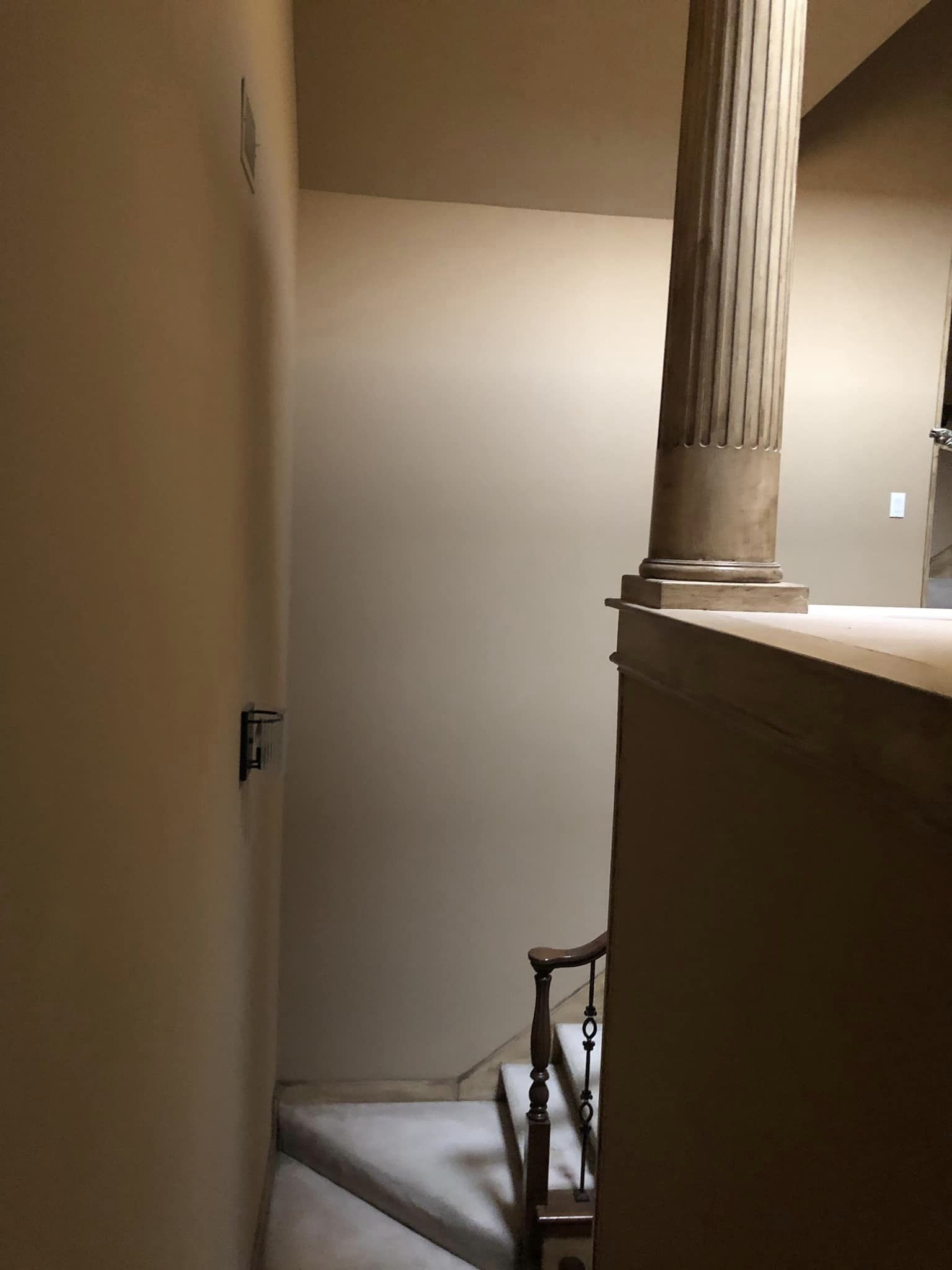What is the most effective way to insulate a cold spot on an exterior wall, possibly due to lack of insulation in the lower part by the stairs?
1 year ago
Last Updated: May 15, 2024
It’s super chilly out there, so I busted out my thermal camera to see where heat is escaping. I found that the bottom of the wall by the stairs is ice cold. I’m thinking there’s no insulation down there, ’cause the top part of the wall looks good. It’s an exterior wall. Any recommendations on the best way to insulate it? Thanks a bunch.


Try drilling a small hole and using expanding foam. Insert the foam into the hole, then press the trigger. I had to do this at my place and it really helped. The hole is small so you can patch it with spackle and paint over it.
Haha, , that’s absolutely genius!
Hey , using low-expansion foam with relief holes is a safe option. I’ve witnessed quite a few disasters from people just casually saying, ‘Just use some expanding foam.’ 😆
Hey , I was actually thinking along the same lines. Maybe consider getting a few cans of slow-expanding closed-cell spray foam. Definitely avoid using “Great Stuff” unless it’s specifically for windows and doors.
It won’t stay contained in a small area. It will spread everywhere. Using one can isn’t going to cause any damage
I personally used great stuff and it was totally fine. It will spread throughout the inside of the wall. You’ve got 16 inches of width and plenty of vertical space.
It really varies based on the type of wall. The exterior walls on block homes are quite different from stick framed ones.
Oh, this is interesting! I might give it a shot.
It really depends on the type of foam you’re using. You can avoid any issues with drywall bowing by not filling the stud cavity.
That sounds like a great plan. I’m a bit cautious about using expanding foam though. I’ve seen some walls that turned out bulging after friends tried it in their home.
Even experienced workers need to be extra cautious to prevent walls from warping and nails from popping.
By any chance, can you access the space below the stairs?
Sorry, but the closet is completely enclosed with drywall.
I wonder what lies beyond the wall? Diane’s idea of using expanding foam through a small hole seems like the best option.
It’s an exterior brick wall.
Oh yeah, I reckon they missed putting insulation in that area. The easiest choice would be to use expanding foam unless you’re up for tearing it all open, adding proper insulation, and then re-plastering the wall (but that’s quite a massive task!)
Try cutting an opening at the top and filling it with loose insulation.
I’m thinking about getting a thermal imager to find all my problem areas.
Weather stripping can only do so much. I discovered several hidden leaky spots near the exterior doors.
That’s exactly what I was considering. There are likely many small problem areas.
Those small ones are great for the price!
That makes sense. I was worried that an animal may have entered the attic and made a nest.
You could drill a small hole, add cellulose, then patch it up. For a budget-friendly option, you could use a leaf vacuum blower with dryer hose instead of renting a machine.
Hey Jeff, I really like this idea. If you happen to have a schematic of the setup, could you please share it? Thanks.
Hey Derek, no need for a schematic, I can explain now. The standard non-cordless 3 in 1 leaf vacuum blower mulcher is the tool we’re talking about. It has a vacuum snorkel that fits a dryer hose perfectly. Basically, a fifth grader can handle it – they just stuff little balls of cellulose into one end of the hose and jab the other end into the wall. If you want to get fancy, there are tons of shop vac attachments to choose from, but remember: more complexity means more room for things to go wrong. The power switch is for you, and the quick yank cord is for the fifth grader to prevent chaos. It’s simple and fun, just make sure everyone wears a dust mask.
Thank you.👍
How old do you think this house is? It seems like there was a window there before haha. If it were up to me, I’d take out a chunk of the Sheetrock just to find out what’s behind it and why it looks like that. After that, I’d seal the air leaks, insulate, repair, fill, and paint.
The house has been standing for 30 years but it doesn’t have any windows. Perhaps I should use a bore scope to take a look inside.
I can’t help but wonder what was happening in the attic with this one.
It looks like , who is probably an electrician, replaced the light fixture and cleared away the insulation but forgot to put it back.
No content
‘t forget about elk feces. You’ll thank me later.
Can you share which thermal you’re currently using?
Oh, it links up with my iPhone.
Oh wow, have you found it to be quite accurate?
According to its documentation, the temperature accuracy is within +/-2C. It’s known for being highly precise and is often considered the top choice in thermal camera reviews. PCMAG gives it a rating of 4.5/5.
Sounds great, I’m definitely getting one! Appreciate it